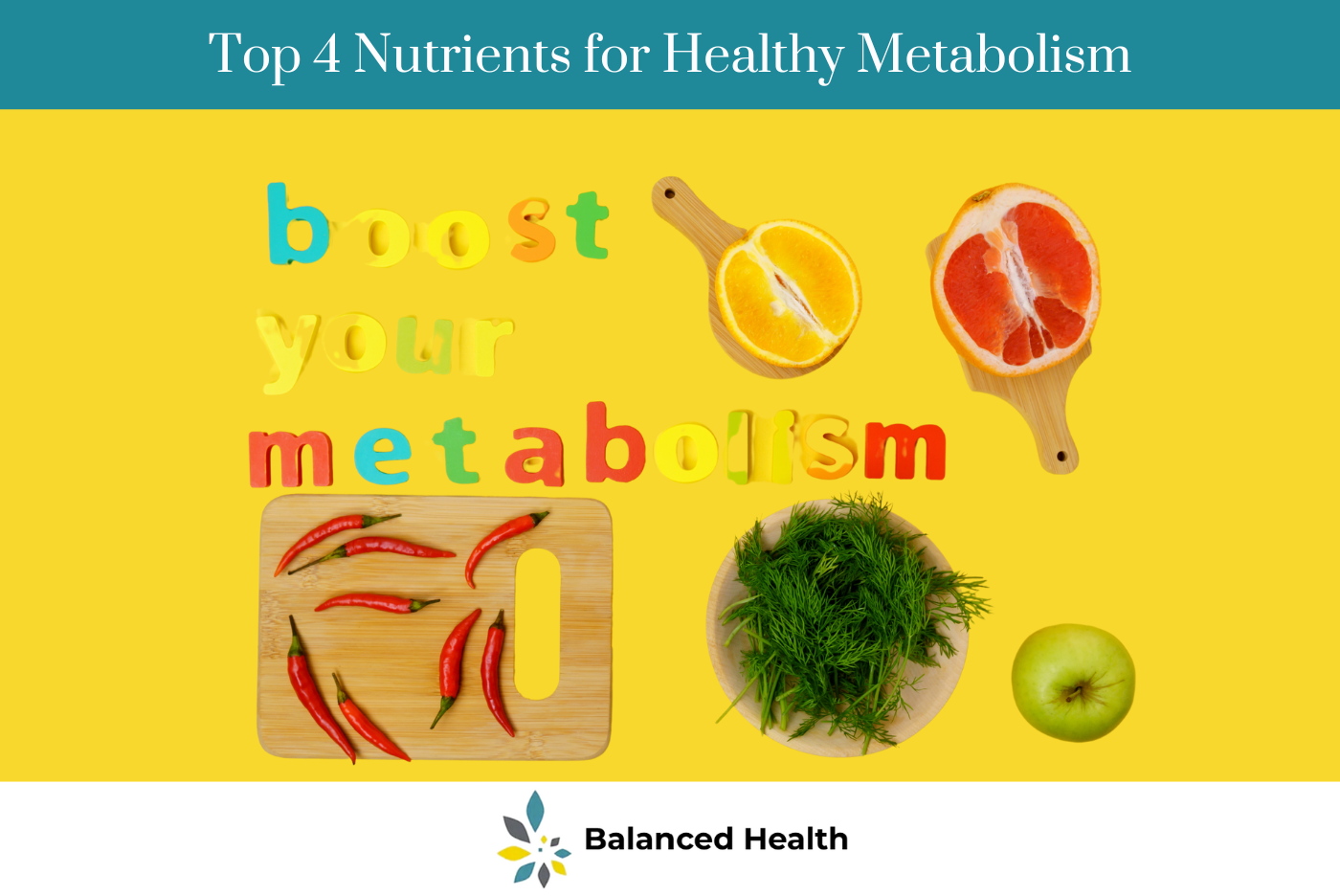 Achieving and maintaining a healthy metabolism is key to optimal well-being. A well-functioning metabolism helps regulate energy, supports weight management, and ensures your body performs at its best. While lifestyle factors like exercise and sleep play an essential role, nutrition is equally critical. In this blog, we’ll explore the top four nutrients that support healthy metabolism: Myo-Inositol, Vitamin D, Chromium, and Vitamin B6. These powerhouse nutrients offer various benefits, from balancing blood sugar to supporting energy production.
Achieving and maintaining a healthy metabolism is key to optimal well-being. A well-functioning metabolism helps regulate energy, supports weight management, and ensures your body performs at its best. While lifestyle factors like exercise and sleep play an essential role, nutrition is equally critical. In this blog, we’ll explore the top four nutrients that support healthy metabolism: Myo-Inositol, Vitamin D, Chromium, and Vitamin B6. These powerhouse nutrients offer various benefits, from balancing blood sugar to supporting energy production.
1. Myo-Inositol
Myo-Inositol, often considered a member of the B-vitamin family, plays a significant role in supporting thyroid function and improving insulin sensitivity.
- How It Works: Myo-Inositol contributes to better cellular communication, which is vital for regulating hormones like insulin. By enhancing insulin signaling, it helps stabilize blood sugar levels.
- Thyroid Support: It is especially beneficial for individuals with hypothyroidism or Polycystic Ovary Syndrome (PCOS), as it can help optimize thyroid hormone levels.
- Sources: Myo-Inositol is naturally found in fruits, beans, grains, and nuts. Supplementation may be recommended for therapeutic purposes.
2. Vitamin D
Vitamin D is more than just a bone health nutrient—it plays a vital role in regulating metabolism and insulin function.
- Improves Blood Sugar Control: Vitamin D helps enhance the function of pancreatic beta cells, which produce insulin, thereby improving blood sugar regulation.
- Supports Fat Burning: Adequate levels of Vitamin D are linked to reduced inflammation and improved metabolic efficiency.
- Sources: Sunlight exposure, fatty fish (like salmon and mackerel), egg yolks, and fortified foods provide natural sources of Vitamin D. For many, a supplement is necessary to achieve optimal levels.
3. Chromium
Chromium is a trace mineral with significant effects on appetite control and muscle building.
- Reduces Cravings: Chromium enhances insulin activity, which can help reduce sugar and carbohydrate cravings by stabilizing blood glucose levels.
- Builds Muscle: By improving insulin’s efficiency, chromium supports the transport of amino acids into muscle cells, aiding in muscle repair and growth.
- Sources: Foods such as broccoli, whole grains, nuts, and lean meats contain chromium. Supplements are also an option for individuals with specific needs.
4. Vitamin B6
Vitamin B6, or pyridoxine, is essential for energy production and fat metabolism.
- Energy Booster: It helps convert carbohydrates into glucose and metabolize fats and proteins, providing sustained energy.
- Fat Metabolism: Vitamin B6 is integral to the process of breaking down and utilizing fat stores, supporting weight management.
- Sources: You can find Vitamin B6 in foods like poultry, fish, bananas, potatoes, and fortified cereals.
How to Incorporate These Nutrients
- Balanced Diet: Include a variety of whole foods like fruits, vegetables, lean proteins, whole grains, and healthy fats in your meals.
- Supplements: If dietary sources are insufficient, consider high-quality supplements after consulting a healthcare provider.
- Lifestyle Support: Combine these nutrients with regular exercise, hydration, and stress management for optimal results.
Comprehensive Q&A Section
Q: Can these nutrients replace medications for metabolic conditions like diabetes or thyroid disorders?
A: No, these nutrients are not a substitute for prescribed medications. They can support metabolic health and complement medical treatments but should always be used under a healthcare provider’s guidance.
Q: How can I know if I’m deficient in these nutrients?
A: Deficiency in these nutrients can be detected through blood tests. Common symptoms include fatigue, cravings, weight changes, or difficulty managing blood sugar.
Q: Are there risks associated with taking supplements for these nutrients?
A: While these nutrients are generally safe, over-supplementation can cause side effects. For example, excess Vitamin D may lead to calcium buildup in the blood, and high doses of chromium can affect kidney function. Always consult a healthcare provider before starting supplements.
Q: Can I get all these nutrients from food alone?
A: A well-rounded diet can provide these nutrients, but certain factors like limited sunlight exposure (for Vitamin D) or dietary restrictions may make supplementation necessary.
Contact Balanced Health
For personalized guidance on improving your metabolism and overall health, contact us:
Balanced Health
📍 Address: 1819 Union St, San Francisco, CA 94123
📞 Phone: (415) 915-5454
📧 Email: contact@drerikahorowitz.com
🌐 Website: BalancedHealthSF.com
Our experts can help design a nutrition and lifestyle plan tailored to your needs. Call today to schedule your consultation and take the first step toward better metabolic health!
 Balanced Health
Balanced Health